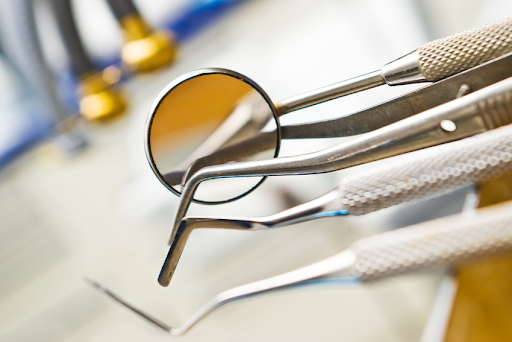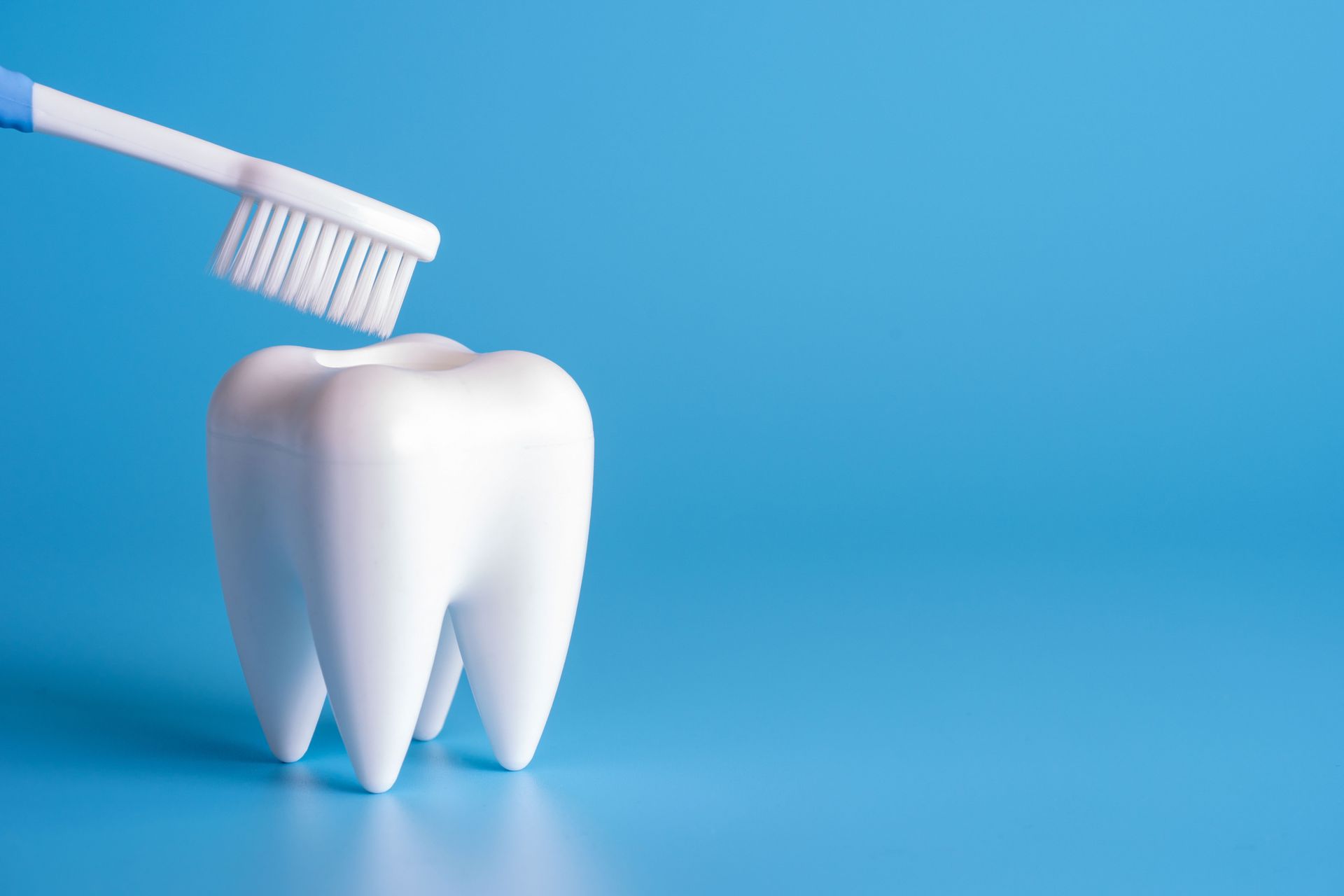What to Expect From a Comprehensive Dentistry Visit
Highlights:
- Understand what comprehensive dentistry includes beyond basic cleanings
- Learn how full oral evaluations help detect issues early
- Explore preventive, restorative, cosmetic, and orthodontic treatments available in one place
- Discover how technology and comfort-focused care improve the patient experience
- See how long-term treatment planning supports both health and aesthetics
- Understand the link between oral health and overall wellness
- Find out why consistency and trust with your dental team lead to better outcomes
If you think visiting the dentist means just a quick cleaning and a cavity check, you might be surprised at what comprehensive dentistry has to offer. At Panneton Dental Group, comprehensive care goes far beyond the basics. It involves a detailed, whole-mouth approach to diagnosing, treating, and preventing oral health issues. This method allows patients to address both immediate concerns and long-term goals under one roof. Whether you’re seeking routine care or full-mouth restoration, comprehensive dentistry delivers a complete solution for lasting dental wellness.
Full Oral Evaluation
Your first visit to a comprehensive dental office typically starts with an in-depth oral examination. At Panneton Dental Group in Omaha, NE, this includes more than just looking at your teeth. Dentists evaluate your gums, tongue, cheeks, bite alignment, and jaw function. They look for signs of decay, gum disease, enamel wear, and even oral cancer. The American Dental Association (ADA) recommends that a comprehensive exam review both medical history and risk factors to catch systemic issues early. Digital X-rays and intraoral photos provide detailed images, helping the dentist catch issues early. This thorough assessment forms the foundation of your personalized treatment plan and ensures that no problem goes unnoticed or untreated.
Preventive Services
Comprehensive dentistry puts prevention at the forefront. At Panneton Dental Group, patients receive more than standard cleanings—they get proactive care designed to stop problems before they start. Services may include professional fluoride treatments, sealants for cavity-prone teeth, custom mouthguards, and deep cleanings for gum health. The Centers for Disease Control and Prevention notes that untreated cavities are among the most common chronic diseases, even though they are almost entirely preventable with regular care. Regular exams track oral health changes, allowing for early intervention. Education on brushing techniques, flossing habits, and dietary choices supports long-term wellness between visits.
Did you know?
Flossing once a day cleans about 40 percent of the surfaces on your teeth. Skipping it means nearly half your mouth is left untouched by routine brushing!
Restorative and Cosmetic Options
Seeing a comprehensive dentist lets you address a wide variety of needs in one location. If you have cavities, broken teeth, or missing teeth, Panneton Dental Group offers restorative options such as fillings, crowns, bridges, dentures, and implants. Cosmetic services like whitening, veneers, and bonding are available for smile enhancement. Because restorative and cosmetic goals are considered together, your plan is more efficient, customized, and results-driven.
Orthodontic and Bite Evaluations
Comprehensive care also examines how your teeth fit together. Bite alignment and jaw function affect long-term health. At Panneton Dental Group, patients are evaluated for crowding, overbites, underbites, and TMJ discomfort. Early detection helps prevent uneven wear, jaw pain, and headaches. For patients in Omaha, NE, discreet orthodontic options such as Invisalign® can correct alignment while maintaining comfort and appearance.
Technology and Patient Comfort
Modern comprehensive dentistry combines advanced technology with patient-centered comforts. At Panneton Dental Group, digital X-rays, intraoral cameras, and 3D imaging allow for faster, clearer diagnostics. Ergonomic chairs, noise-canceling headphones, and gentle techniques reduce anxiety. Sedation options ranging from nitrous oxide to oral conscious sedation help nervous patients relax, making procedures smoother and safer.
Sedation and Anxiety Management
Dental anxiety keeps many people from getting needed care. Comprehensive practices address this head-on. Options like laughing gas, oral sedatives, or IV sedation are matched to a patient’s comfort level and medical history. A calm environment, clear explanations, and the ability to pause at any time further reduce stress. When patients feel safe, they’re more likely to return for preventive visits, keeping small issues from becoming big problems.
Long-Term Treatment Planning
One key benefit of comprehensive dentistry is its strategic, long-term view. At Panneton Dental Group, care isn’t just about fixing today’s issues—it’s about supporting health for years. After the exam, the dentist prioritizes treatments based on urgency, budget, and lifestyle. Whether you need gum therapy, orthodontics, or full-mouth reconstruction, everything is coordinated in a step-by-step timeline. This thoughtful approach makes dental goals manageable, predictable, and less overwhelming.
Did you know? Tooth enamel is the hardest substance in the human body, but unlike bone, it can’t regenerate once it’s lost. Early prevention and timely restoration are essential to protect it.
Oral–Systemic Health Connection
Comprehensive dentists understand that oral health and overall health are linked. Research from the National Institute of Dental and Craniofacial Research shows that nearly half of U.S. adults over 30 exhibit signs of periodontal disease, conditions that may raise the risk of heart disease and diabetes. By monitoring gum health, screening for inflammation, and coordinating with physicians, practices like Panneton Dental Group help safeguard whole-body wellness.
Building Long-Term Relationships With Your Dental Team
Comprehensive dentistry isn’t just about offering a wide range of services—it’s about building long-term trust with your dental care team. At Panneton Dental Group, patients in Omaha, NE are treated like partners in their care, not just charts on a clipboard. Seeing the same team over time helps you feel more comfortable and allows the dentist to track subtle changes in your oral health.
Personalized recommendations, consistent care plans, and open communication build confidence and reduce stress. When your dental provider knows your history and goals, it leads to better outcomes and a more enjoyable patient experience.
This kind of continuity also means faster diagnoses, fewer repeat explanations, and a dental team that understands your personal preferences. Over time, it transforms routine appointments into a truly personalized experience you can rely on.
Lifestyle Support and Education
Beyond dental procedures, comprehensive care also includes personalized coaching to support daily habits. At Panneton Dental Group, this may involve reviewing your oral care routine, recommending tools like electric toothbrushes or water flossers, and discussing how smoking, stress, or diet may be affecting your oral health. Education empowers patients to make informed decisions, reducing their long-term dental risks. This focus on prevention, habits, and understanding helps patients take ownership of their care and feel more confident doing it.
How long does a comprehensive dental visit take?
Plan on 60–90 minutes for the first appointment, especially if X-rays and a full exam are included.
Does insurance cover comprehensive care?
Most preventive and restorative services are covered; cosmetic treatments are generally out-of-pocket
Can children receive comprehensive dental care?
Yes! Many practices, including Panneton Dental Group, welcome pediatric patients.
Comprehensive Means Complete
Comprehensive dentistry is more than a service—it's a philosophy of care. At Panneton Dental Group, every visit gives patients in Omaha, NE, a complete picture of their oral health and a roadmap to improve it. From preventive cleanings to advanced restorations, each treatment works together for long-lasting results.
Choosing a comprehensive practice means gaining a partner in lifelong health. You don’t have to bounce between specialists or guess at your next steps—everything is coordinated, transparent, and tailored to your needs. That level of attention makes your experience not just more convenient, but more successful for your health and smile.





Share On: